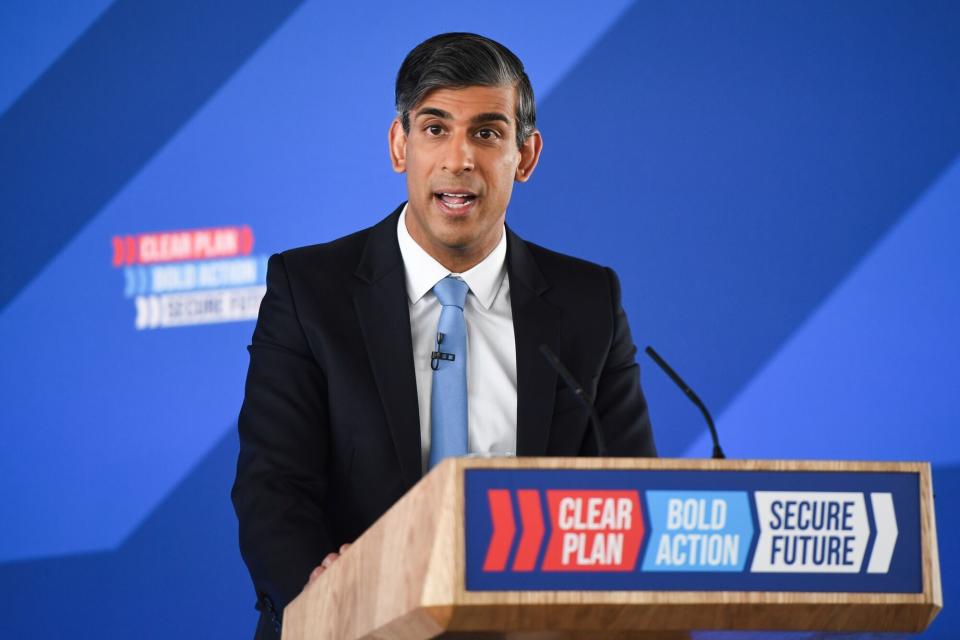Sunak Says Family Sacrificed Sky TV to Pay His School Fees
(Bloomberg) -- Rishi Sunak said he went without “lots of things” including Sky TV as a child so his parents could pay for his private education, as the prime minister used a controversial campaign interview with ITV to try to respond to criticism he is out of touch with voters struggling with the cost of living.
Most Read from Bloomberg
Apple to ‘Pay’ OpenAI for ChatGPT Through Distribution, Not Cash
Hunter Biden Was Convicted. His Dad’s Reaction Was Remarkable.
US Inflation Broadly Cools in Encouraging Sign for Fed Officials
Fed Officials Dial Back Rate Forecasts, Signal Just One ‘24 Cut
Gavin Newsom Wants to Curb a Labor Law That Cost Businesses $10 Billion
“I was raised in a household where hard work was really important,” Sunak told the broadcaster in an interview recorded on June 6, hours after he had returned early from events to mark the 80th anniversary of D-Day in Normandy, northern France. “My parents worked very hard for what they had. And they wanted their kids to have a better life. And I think that’s a good thing.”
Sunak’s Conservative Party is trailing far behind the opposition Labour Party ahead of the July 4 general election, with polls showing voters blaming the Tories — in power since 2010 — for the country’s ailing public services and moribund economy. The prime minister insists the UK has “turned a corner,” even as fresh GDP figures released Wednesday showed more stagnation.
Yet his answer reflects more than the difficulties associated with incumbency. The question of whether a prime minister understands the struggles of ordinary voters is an ever-present one in British politics, but in Sunak’s case doubts about his political acumen have been exacerbated by his personal wealth.
Sunak often mentions his parents both worked for the UK’s state-run National Health Service, a reference designed to illustrate a grounded upbringing. Labour leader Keir Starmer’s line, which he uses in almost every appearance, is that he is the son of a toolmaker. His mother was a nurse in the NHS.
The prime minister’s path into politics was far from unique. He was educated at the fee-paying Winchester College, graduated from Oxford University, got an MBA at Stanford and worked in banking before he was a politician. But when his party is struggling and voters are facing an historic squeeze on living standards, it’s not an asset in the heat of an election campaign.
In that context, saying that he went without subscription television as a child seems unlikely to change the perception of a premier who is out of touch.
Still, Sunak’s bigger problem is likely to remain the interview timing. His decision to leave the D-Day events early caused a political storm, after Foreign Secretary David Cameron stood in his place alongside US president Joe Biden, French president Emmanuel Macron and German chancellor Olaf Scholz. Sunak was criticized even by senior members of his own party.
It means that whatever else Sunak said in the interview, which airs at 7 p.m. on ITV, the question voters will be wondering is why it was so urgent.
Most Read from Bloomberg Businessweek
The World’s Most Online Male Gymnast Prepares for the Paris Olympics
China’s Economic Powerhouse Is Feeling the Brunt of Its Slowdown
Israeli Scientists Are Shunned by Universities Over the Gaza War
Food Companies Hope You Won’t Notice Shortages Are Raising Prices
©2024 Bloomberg L.P.




